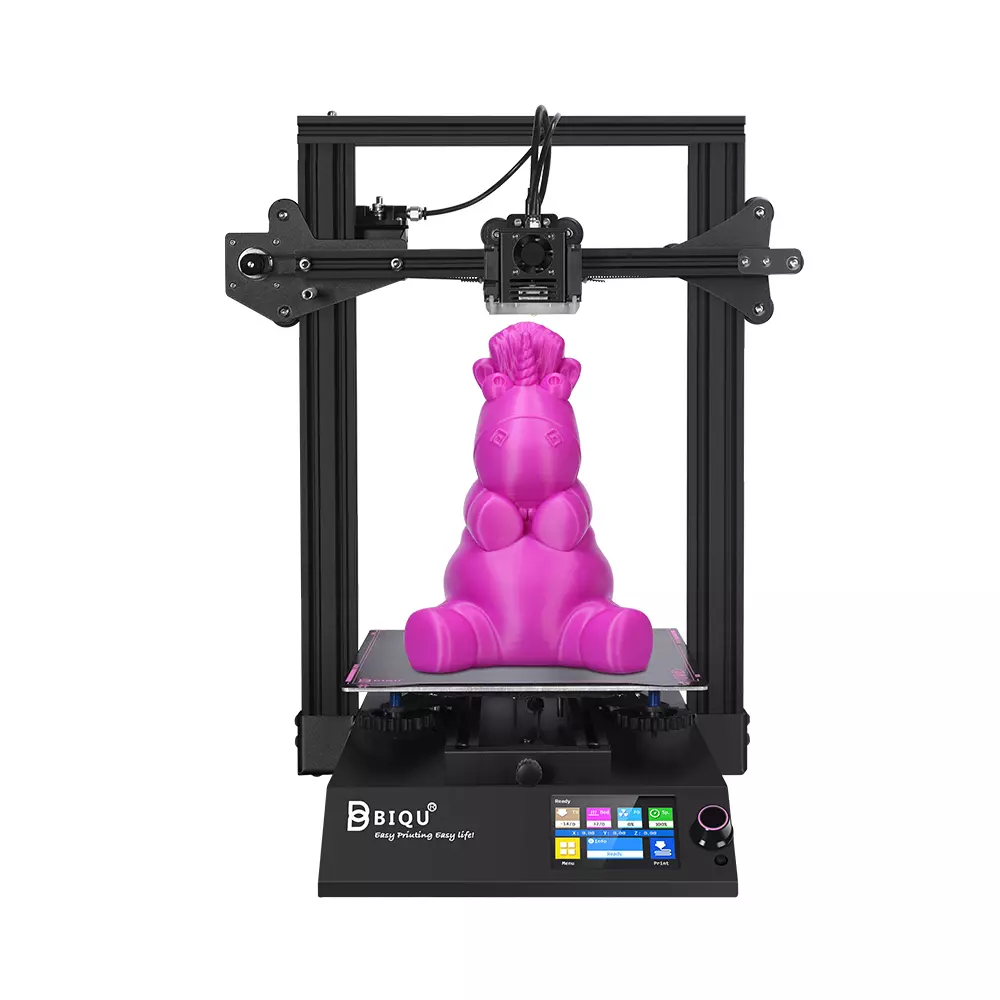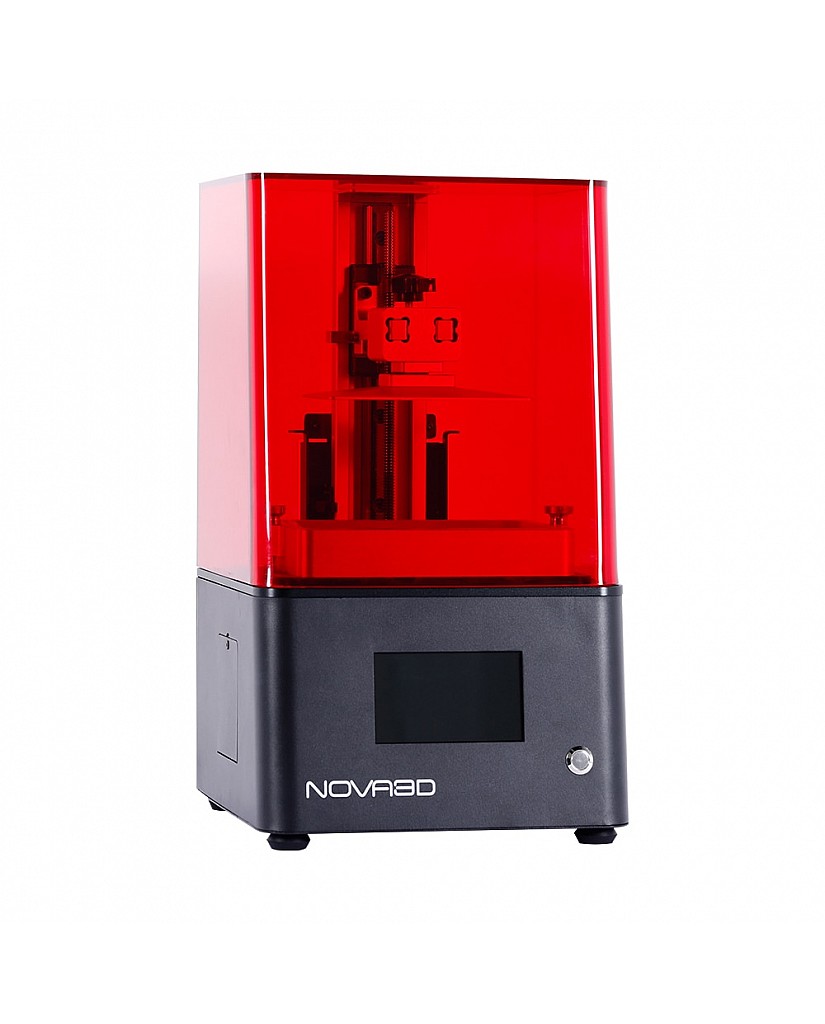Compare BIQU B1 vs Bene4
Comparison between the best 3D printers
Choose the best 3D printer at the best price. The cheapest 3D printers are here.
Buy a 3D printer here with 3D Fila.
 |
 |
|
| Model | BIQU B1 |
Bene4 |
| Printing Material | Filament | Resin |
| Buy Filament for BigTreeTech BIQU B1 | Buy Resin forNova3D Bene4 | |
| Estimated price | $269,00 | $350,00 |
| Manufacturer | BigTreeTech | Nova3D |
| Release Year | 2020 | 2021 |
| Print Volume [mm] | 235x235x270 | 80x150x130 |
| Printer Size [mm] | 412x402x492 | 240x240x430 |
| Weight [kg] | 8,00 | 9,5 |
| Power Loss Recovery | YES | NO |
| Maximum Resolution [mm] | 0,1 | 0,01 |
| Processor | 32 Bits BTT SKR V 1.4 | |
| Display | Touchscreen TFT 3,5'' | Display touchscreen 4,3'' |
| Power Supply | 24V / 360W | |
| Connectivity | SD / USB | USB / Wi-Fi |
| Operating systems | Windows, Mac, Linux | Windows, Mac, Linux |
| Date of registration in the system | 2021-04-14 | 2023-03-24 |
| Release date | 2020 | 2021 |
| Extra features | The BIQU B1 is an advanced 3D printer with a silent 32-bit BTT SKR V1.4 motherboard and ARM Cortex-M3 CPU, offering DIY interfaces (I2C, SPI, WiFi) and dual Z-axis. Its dual BTT B1 TFT35 V3.0 operating system allows real-time monitoring and multiple printing modes, including G-code visualization effects. It stands out for its BIQU SSS (Super Spring Steel), ensuring easy model adhesion and simplified removal, with the possibility of using it on both sides. It includes a filament sensor, automatically pausing printing in case of filament breakage. The multicolored RGB lights integrated into the hotend allow you to view the printing status even at night. Additional notes include the need for a BIQU-specific Type-C cable and extra interfaces for smart filament sensor and BL Touch. | The Bene4 Mono Printer stands out for its 6.08-inch 2K monochrome display, which allows for faster curing times and longer lifespan. With print accuracy that rivals its competitors, it offers a factory-pre-leveled build plate, eliminating the need for manual adjustments. It has a hinged lid for easy access and reduced resin mess. The metal reservoir comes with useful features such as pouring aid and maximum level indication. In addition, it has Wi-Fi connectivity and a sleek design with a 4.3-inch touchscreen display. |
| Support for multiple colors and materials (AMS and CFS) | NO | NO |
Notes * |
||
| Cost-benefit | 7 / 10 | 8 / 10 |
| Hardware | 2 / 10 | 0.5 / 10 |
| Tela | . | . |
| Print volume | 3 / 10 | 3 / 10 |
| Performance | 1 / 10 | 9 / 10 |
Conclusion |
| In comparing the BIQU B1 and the Bene4 3D printers, several key factors emerge that can help potential buyers make an informed decision. The BIQU B1, released in 2020, is an advanced FDM printer that offers a larger print volume and a range of features ideal for enthusiasts and DIY projects. Its notable capabilities include power loss recovery, a robust dual-axis system, and a user-friendly touch screen interface. Additionally, it boasts a lower price point, making it a more budget-friendly option without sacrificing essential features. However, its performance rating is lower, which may indicate limitations in printing speed or quality for more complex projects. On the other hand, the Bene4, launched in 2021, is a resin printer with impressive resolution and print accuracy, making it suitable for detailed works. The Bene4's features include a monochrome display for quicker curing times, factory pre-leveling for convenience, and Wi-Fi connectivity for enhanced usability. Although it commands a higher price, the performance rating reflects its superior precision, catering to users who prioritize high-quality prints over larger volumes. In conclusion, the choice between the BIQU B1 and Bene4 largely depends on the user’s specific needs. For those looking for a versatile and economical FDM printer capable of handling a variety of projects, the BIQU B1 presents an attractive option. Conversely, if print quality and detail are the foremost priorities, the Bene4, with its advanced features and higher performance, justifies its higher price. Ultimately, understanding the balance of cost, features, and intended use will guide buyers to the most suitable choice for their 3D printing endeavors. |

